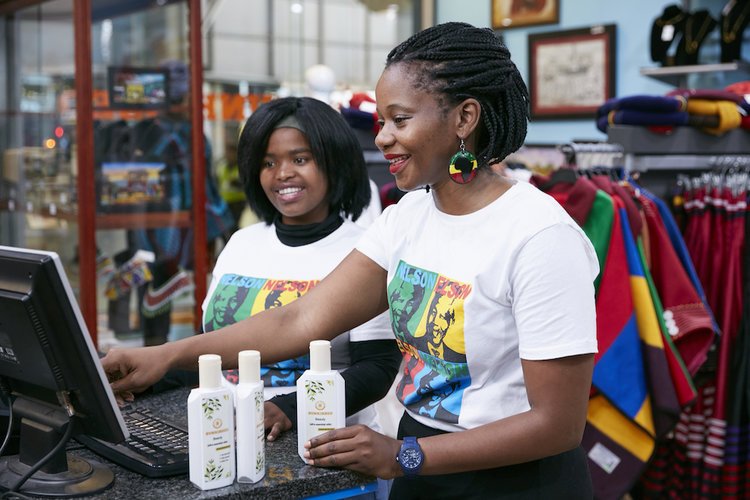The ripple effect of empowering women
Gender equality is one of the United Nation’s (UN) sustainable development goals which they claim is not only a fundamental human right, but a necessary foundation for a peaceful and prosperous world. As well as the obvious social benefits, there are also significant economic benefits to the advancement of women’s equality, with McKinsey estimating that it could add $12 trillion to global economic growth by 2025. However, while this number might seem big, it pales in comparison to the true economic impact gender equality stands to achieve.
“Investing in women causes a ripple effect, the benefits of which can be felt in their families, communities, countries and even the world. This is because women typically re-invest majority of their earnings, spending up to 90% on their families and communities, according to the UN,” says Bridgit Evans, SAB Foundation Director.
This is why the UN has stressed that women’s economic participation actually speeds up development and has a significant impact on the improvement of health, wellbeing, education and the alleviation of poverty for all.
“Considering the potential women have to create change it is surprising that women in South Africa are still more likely to be unemployed, earn an average of 28% less than men, according to the Global Wage Report, and only make up about 18% of the country’s business owners,” says Evans.
The International Finance Corporation claims that small, medium and micro-sized businesses that are run by women are better at reinvesting profits, directing money towards their families’ health and education, as well as strengthening their local communities. However, female entrepreneurs face a number of hurdles such as limited access to financing, with Fortune finding that they only get about 3% of all venture capital funding.
“Investing in women means investing in the betterment of the whole world, which is why we need to focus on helping female entrepreneurs. At the SAB Foundation, we prioritise the support of female owned businesses and, out of the 2 637 entrepreneurs we have supported so far, 64% are women. This investment isn’t only monetary and we also offer business training and mentorship aimed at giving them the best possible chance of creating sustainable, profitable enterprises,” says Evans.
The SAB Foundation offers a number of programmes aimed at promoting entrepreneurship in South Africa and their flagship Tholoana Enterprise Programme is now open for applications.
“So far, through the programme, we have invested over R121 million in promising South African entrepreneurs and, based on the compound effect we have witnessed from our investment in female entrepreneurs, we strongly encourage women to apply,” say Evans.
One such entrepreneur is Rushana Hartnick, the founder and director of Little Mermaids Swim School. Prior to starting her business, Rushana was a swimming instructor at a suburban school in Cape Town but her dream was to teach children in her area to swim. She now services 500 swimmers a week at her state-of-the-art swimming centre in Mitchells Plain, Cape Town.
Mitchells Plain is synonymous with crime and gangsterism which is why Rushana is working hard to extend the benefits of her swim school into the wider area. This includes only employing locals and, so far, she has created jobs for eight of her community members.
Alex Msitshana, another Tholoana Enterprise Programme participant, is the founder and Managing Director of the Deaf Empowerment Firm (DEF), based in Soweto. When Alex became deaf, she was well qualified and had over ten years of work experience. Despite this, she struggled to find employment. This led her to question what was happening to young people with hearing impairments in her community, who didn’t have the benefit of experience or qualifications.
As a result, she founded DEF, an organisation that provides skills development programmes and employment opportunities to the deaf, with the aim of helping them to become active participants in the economy. So far, she has assisted over 200 candidates provide a recruitment service as well as offering training, including an IT programme aimed at developing coders and an enterprise development programme, aimed at helping people start their own small businesses.
“Success stories like those of Alex and Rushana demonstrate the capacity for female entrepreneurs to create waves of change that reverberate into their wider environments. We’re looking forward to seeing the difference of this year’s intake of Tholoana Enterprise Programme Participants will make in their communities,” concludes Evans.
Visit www.sabfoundation.co.za/tholoana-enterprise-programme to find out more about the programme and how you can apply.

